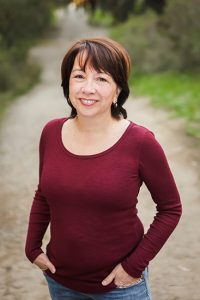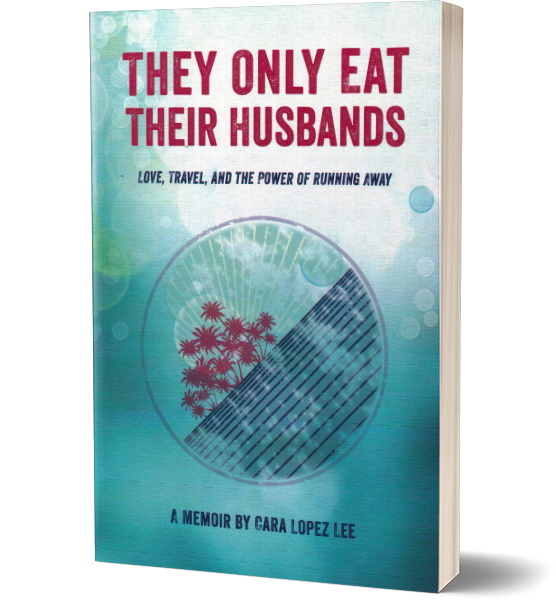John, our new neighbor, was lost, and we had lost him in an Alaskan winter. The kind of far north winter that had grainy snow that crunched when you walked on it. Snow so white, so bright, shadows disappeared, and you’d walk out into thin air not knowing, falling so soft, not caring, just a whoop, then laughter. The air so clear, so calm, so cold. Water vapor turned into tiny ice crystals that hung in the air. It was our beautiful Alaska, but now John was lost and it could become his deadly Alaska.

It was our beautiful Alaska, but now John was lost and it could become his deadly Alaska. (photo ©Michele Cornelius|Dreamstime.com)
Two weeks earlier, his wife Esther, my wife Diane, and I had driven John up the Steese Highway so he could look for gold in the frozen creeks while they were low. John was a dreamer, but then so were we. It was 1971, an era of back-to-the-land movements, when I was 23 and Diane was 24. We’d only known John for ten days, but we drove him up that highway so he could have his dream.
That winter night, we drove past the pavement, past the last house, and up the unplowed road until we came to a hill the old Pontiac couldn’t climb even with chains. It was a beautiful, full-moon-bright night. Spruce hanging heavy with snow, road so narrow, trees so close. It was an Alaskan winter night at its best. John got out at that hill, said his goodbyes, and went over the top. We stayed watching until one last wave and he disappeared. We were high on Alaska’s dark beauty and Diane burst into song. She was like that: give my little hippy girl a word or special moment and she had a song for it. Then I thought about turning around.
Ever see a painting of a winter woodland scene? A snowy path leading to an old cabin with an old red pickup parked outside. The kids unloading a Christmas tree with the dog jumping up in joy. Smoke drifting lazily up from the stone chimney. Look at it closely the next time: it’s not real. No, I’m not talking about the lack of cabin junk lying around outside, or where the outhouse is. I’m referring to the lack of a turnaround for that truck. That’s where we were that picturesque night: trapped in a perfect picture with no turnaround.
I backed the old Pontiac down the narrow road, looking for a place to back into. A milepost slipped by, then another. I was backing up on two narrow tracks of hard-pack snow under a starry moonlit night. I slipped off the tracks, each only as wide as a tire, felt the frame scrape the frozen snow, and then jumped back up on those tiny paths to safety. The moon disappeared behind a cloud.
“I can’t see the ruts.” I said, ignoring the panic rising in my thoughts.
“I’ll get out and guide. Just don’t run me over,” came Diane’s muffled voice as she pulled her wool facemask down. All I could see were her eyes now, no concern in them yet. It was still just a beautiful night. “Wow, this is deep.” Diane looked more like she was entering a swimming pool than just getting out of a car. The snow was above her knees and now she knew the danger and the singing stopped.
The picture-perfect night was becoming a frozen nightmare.
Esther sat quiet and alone in the back seat with her thoughts so loud that I reassured her. “No problem. We’ll come to a place to turn around. Once we get facing in the right direction, this’ll be easy.”
We passed another milepost, twenty minutes for a mile, three miles per hour. Everybody was exhausted from the tension. Diane was now walking backward, her hand motions directing the car. She was tiring and fell again. Something had to change.
“Let me help. Diane needs a break.” I was concentrating so hard that I’d forgotten about Esther until she spoke.
“Huh?” I’d heard what Esther had said, but “huh” was the best response I could come up with. Esther, who was sixty, wanted to take Diane’s place. Esther, in her black fake-fur town coat, clear plastic pullovers protecting her shoes, and a pretty scarf shrouding her gray-white head, had volunteered.
That night we were as fictitious as Esther’s fur coat. We were newly transplanted kids from Ohio trying to solve an Alaskan problem. We had no business up that unplowed, untraveled road that night.
Ever hear somebody say that a place felt alive? Alaska is like that. You can hike out of a burnt-over black spruce forest and enter a patch of old trees hundreds of years old. Huge cottonwood and white spruce stand on sphagnum moss so deep that each step is a warning: far enough, you don’t belong, you need to go. Then your hair stands up on the back of your neck and you back out, knowing that you were standing inside something sacred: an ancient forest cathedral and the gods were at home.
We had spent the summer and winter pretending we were Alaskans, and now we were caught trespassing at night in that ancient cathedral. The gods knew we were there, interrupting their peace, traveling that winter road. They understood we weren’t baptized in the ways of the north, didn’t belong, so they hid the moon and stopped the show. Yet there we still were, slowly backing up, ruining the peace of their world. They wanted us gone, so the moon came back out, just enough to show me a turnaround. It was a small open space, a small piece of luck, very small. My brain assessed the possibilities, and produced hope.
As Diane stepped aside, I gunned the engine and turned into the opening, up the slight rise. I could use the rise for momentum and bull my way through the deep snow to the tracks again, this time facing foreword. I stopped the car, and Diane waded through the snow and climbed into the front seat. We were going to win. I put the car into gear—first, second or third, it didn’t matter—I gave it a little gas, and the rear tires dug in. Chained tires look for something to grab, but the frozen ground was six inches below the frame of the Pontiac. When it turned hopeless and I let up on the gas, the car was balanced full length on a bed of packed snow. We were so stuck that the front wheels could be turned by hand. The gods sighed and saw the hopelessness. They brought back the moon as we started to walk the road.
It was seven p.m. when we started to walk, no idea how far we needed to go. The temperature held at ten below and the moon showed us just enough, as we walked that track of snow. Eight p.m. came and went. I wondered, but it wouldn’t matter, if Esther was tired or if she was cold. Diane was singing They Call the Wind Maria. She was young and dressed for the cold, but when she got to “folks were up there dying” she stopped. Too close to real, bad luck. Another milepost went by, but it didn’t matter. Forward was our only hope, movement our only warmth. Then 9:30 came and I heard a far-off sound, or was it just the thud of my heart amplified by the silent cold winter night?
to be continued…
***

Ron Shale was born in Ohio in 1948. In 1971, he graduated from Bowling Green State University, where he met his wife, Diane. When they graduated, they drove an old Pontiac to Alaska, where they lived in tents, built log cabins, and adopted two girls. Ron is a retired power lineman. Diane wrote Alaska’s first preschool correspondence course. They now live in Englewood, Colorado.




